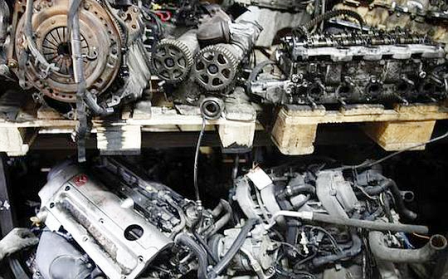ROTIMI ASHER
Local content sourcing is in the heart of a nation’s automotive industry. More so it is when it concerns value chain and thousands of job creation therein. That explains why it forms the core part of the Nigeria’s National Automotive Industry Development Plan (NAIDP), a provision aimed at achieving high proportion of parts of locally produced vehicles.
Recently, at the Nigeria Auto Journalists Association (NAJA) award, the newly appointed Director- General, National Automotive Design and Development Council (NADDC), Mr. Joseph Osanipin passionately canvassed for local content development in the Nigeria auto industry.
Calling on the auto industry stakeholders to embark on auto components sourcing from Nigeria, he said: “It is the duty of the Federal Government to draw up policies to chart the path for the future of the industry. But it is the private sector stakeholders that must make it happen, because the future of the industry is in their hands.’’
However, the question remains: How feasible is local automotive content production without legalizing the NAIDP?
Agreed, the future of the Nigeria auto industry is in the hands of the stakeholders, it is no less true that the Federal government is expected to importantly create an enabling environment, which include building the right infrastructures and relevant legal framework.
For over 8 years now, the government has failed to do the latter.
It is on record that, about five years ago, Ghanaian government got a copy of the Nigeria’s auto policy/NAIDP, adapted for the country, pushed it through the nation’s parliament after which the Ghanaian president signed it into law without delay. In response to that confidence creation legal framework put in place, a number of OEMs (Original Equipment Manufacturers) have made Ghana the hub of automotive investments in West Africa.
When NAIDP was drafted in 2014, one of the objectives was to increase volumes of locally assembled vehicles by discouraging importation of fully Built Up (FBU) new and used vehicles into the country. To this end, while Completely Knocked Down (CKD) and Semi-knocked Down vehicle components are charged 0% and 5%-10% duties, NAIDP sets import tarrifs at 70 %( 35% duty plus 35% levy) for imported fully built up cars and 35% duty without levy for commercial vehicles in the first phase. This phase was meant to decrease as the sector grows and become more competitive.
As production increases through patronage, the auto assembly plants were supposed to move from SKD to CKD operations and local content incorporation. With legal backing of the NAIDP, it was expected that OEMs would begin manufacturing of vehicles and eventually component parts productions in the country.
Sadly, while attempts were made to implement the NAIDP contents in piecemeal, the bill never received presidential accent by the predecessors of President Bola Ahmed Tinubu. Instead, with the 2020 Finance act, the nation’s auto industry suffered a setback.
Speaking on the negative implication of the Finance act, Chief Executive Officer, Transtech Industrial Consulting and Former Director, NADDC, Mr. Luqman Mamaudu said, “the 2020 Finance act simply cancelled the Nigeria Automotive Programme (NAIDP) 6 years into its 10-year life span,’’ adding that the concern stakeholders have about the effect of the act on NAIDP is genuine because it simply opened up Nigeria for uncontrollable import of fully built up New and pre-owned automobiles from other economies including her brother African countries.’’
“What government needed to do and which is part of the programme has been jettisoned,” Mamudu lamented, adding, “That is provision of vehicles Asset Acquisition of cheap loans, which we were ready to launch when suddenly cancelled by some powerful interests in the industry. The levy collected was meant to Finance this scheme. I wonder what will happen to monies collected now. This would have enabled Nigeria acquire vehicles built in Nigeria by the global OEMS here to drive demand.
“Nigeria’s problem is long term money to buy vehicles and pay gradually. Until you have this, you cannot reduce tariff to 0% and Nigerians still won’t be able to acquire new vehicles- individuals and haulage firms alike.”
Much as sourcing local content locally is the best way to go, there has been little or no encouragement from the government in terms of patronage. In past years, various laws were passed forbidden government parastatals from buying imported vehicles, version of which are made or assembled in Nigeria.
Neither has there been any auto finance scheme in place to stir patronage. Although a number of Nigerian banks are marketing auto finance, none is charging single digit interest rate as provided for by the proposed NAIDP. Rather, some charge 22% or even more. As a result, patronage has been low for the nation’s locally assembled vehicles. Worst, many of the assembly plants have closed down as a result. Those in operation barely survive due to lack of foreign exchange for kits.
Yes, we may be able to source seats, plastic, windscreen and mirror; would they meet up to the quality expected by the OEMs? It is important that the component parts measure up to international standard. Local content sourcing seems to be the priority of the new DG. But my concern really is: should that be first thing to do?

Motoring World’s Lagos Bureau Chief
The fact is that local content development in the country can best be implemented within the relevant legal framework. If you ask me, I will say he should ensure the NAIDP bill is passed first and all other things will fall into place.
©Copyright MOTORING WORLD INTERNATIONAL. All rights reserved. Materials, photographs, illustrations and other digital content on this website, may not be reproduced, published, broadcast, rewritten or redistributed in whole or in part without prior written permission from Motoring World International
Contact: editor@motoringworldng.com





